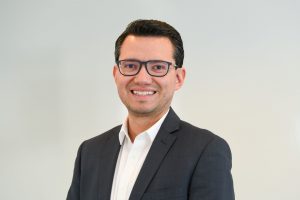 Picard Angst (PA) is an independent Swiss financial services provider, established in 2003. Based in Zurich and the UAE, the firm offers different investment solutions and takes on individual asset management mandates with its 40 investment professionals. It runs several investment strategies in the listed and alternative space, including the Food Revolution Fund, different commodity and real estate strategies and two medical technology venture capital funds.
Picard Angst (PA) is an independent Swiss financial services provider, established in 2003. Based in Zurich and the UAE, the firm offers different investment solutions and takes on individual asset management mandates with its 40 investment professionals. It runs several investment strategies in the listed and alternative space, including the Food Revolution Fund, different commodity and real estate strategies and two medical technology venture capital funds.
Jann Breitenmoser works as a senior investment manager at PA and is part of the food revolution team. Previously, he worked at Man Group, where he co-managed a thematic investment strategy focused on water and the circular economy. Before that, he worked as portfolio manager at J Safra Sarasin Asset Management, where he managed different impact and sustainable equity strategies. He started his career more than 14 years ago at Akina (formerly Lombard Odier Private Equity), working as a private equity associate.
What is PA’s client base?
We have a broad client base of mainly Swiss and international institutional investors.
What are its assets under management?
We currently manage more than $4 bn in assets under management with continued inflows across both regions and into our various product solutions and services.
What is the Food Revolution Fund’s investment objective?
The global agri-food system is highly inefficient. The yearly food production value amounts to $8 tn, corresponding to around 10 percent of global GDP. In producing this 10 percent, the agri-food sector generates a third of global emissions, occupies half of the planet’s habitable land and consumes more than two thirds of the available fresh water. This makes the agri-food system a source of significant external costs related to environmental and health damages or malnutrition, which are not reflected in the price of food. This market failure results in false incentives and a structural overuse of natural resources.
In recent years we have seen an increasing pressure to internalize and address these external costs. In this structural shift toward a more efficient and sustainable food system, the global food industry, which is dominated by large multinationals, has an important role to play and bears a lot of responsibility. At the same time, this process poses significant challenges for these ‘old food’ companies. The vast majority of them sit on huge historically grown portfolios that are dominated by plastic, sugar, meat and other problematic products, and are facing growing pressure to adjust.
As investors in the food revolution, we leave these old-food companies aside and focus on innovative companies that we consider to be part of the solution. As the winners of tomorrow’s food industry, they should enjoy a significant tailwind in the years to come and offer attractive investment opportunities. These companies can be found in both the large-cap and small-cap space.
What is the fund’s strategy and style?
The fund adopts a fundamental, thematic and style-agnostic investment approach, with a focus on the agri-food industry. We aim to capitalize on major catalysts for change and fundamental trends around the food revolution that evolve independently of the economic cycle and can become a permanent source of capital growth and attract future money flows.
We invest in 40-60 publicly listed equities (using no benchmark) offering exposure to six sub-themes covering the entirety of the agri-food value chain:
• Alternative proteins (such as ADM)
• Sustainable packaging solutions (such as Graphic Packaging)
• Organic, healthy and functional food (such as BellRing Brands)
• New forms of consumption (such as Zebra Technologies)
• Automation and agri-tech (such as GEA Group)
• Food safety and clean label (such as Novonesis)
By focusing on such themes throughout the entire agri-food value chain rather than through sectors, our equity long-only fund is able to invest across all geographies and market capitalizations, thereby offering an undiluted exposure to winners of the food revolution, combined with sufficient diversification. This should help to reach an uncorrelated and differentiated alpha generation relative to more traditional equity benchmarks.
Which screens do you use?
Our investment decisions and portfolio weightings are based on an in-depth bottom-up analysis. For all of our invested companies we conduct a detailed fundamental analysis and calculate an intrinsic value for each company. This is, however, only one aspect of several that we consider in our own proprietary scoring system.
Among other aspects, we assess in detail:
• Competitive landscape and defendable entry barriers (moat)
• Earnings momentum and estimate revisions
• Ability to fund future growth
• Access to and track record of management
• Earnings quality and return on invested capital
• Short and long-term catalysts
• ESG considerations and general profile of each company
How are ESG and sustainability embedded into the investment process?
Our sustainability strategy applies a systematic, modular ESG approach, the PA ESG layer, which is fully integrated into the investment process and part of risk management. This takes into account both exclusion criteria (such as low ESG ratings, controversial weapons, stranded assets or companies involved in serious controversies) and integration of ESG scores to reduce risks and optimize opportunities. On top of the general exclusions mentioned above, we apply an ESG framework specific to the food revolution strategy, including specific inclusion criteria.
Our investment approach is focused on pure-play companies, which we consider to be beneficiaries of the structural shift toward a more sustainable and efficient food industry. Hence, we do not invest into structurally challenged old-food companies. We use a systematic approach to structure the listed agri-food universe into categories, based on the food revolution ‘purity’ of their revenues.
This measures the percentage of revenues a given company is generating along the value chains of our previously mentioned six sub-themes. The weighted average revenue purity of the overall portfolio must exceed 75 percent, so we mainly focus on companies with A and B ratings. We also exclude category D companies, which are considered old food.
Do you use external ESG ratings providers?
Currently more than 95 percent of the portfolio’s market value is invested in companies with an existing ESG score. For these companies, we apply internal ESG criteria and also use data from large third-party providers. For the other companies without a rating – mainly due to their small market cap – we apply our internal ESG criteria. Our strategy currently has an overall AA MSCI ESG Rating.
Do you have market cap constraints?
No. Our portfolio reflects a mix of young, smaller, fast-growing ‘disruptors’ and established companies with a strong market positioning, a clear moat and attractive cash generation. Currently 40 percent of our portfolio is invested in companies with a market cap of more than $10 bn. Another 40 percent is invested in companies with a market cap between $2 bn and $10 bn, and the remaining 20 percent is invested in smaller firms with a market cap below $2 bn.
What is your average holding period?
By its very nature, thematic investing is looking at changes and trends that have durability. Our strategic time horizon tends to focus on three to four-year cycles. Tactically we have a shorter time horizon, mostly focused on the calibration of risk-reward and rebalancing. The portfolio is expected to see a yearly turnover of around a third.
Do you like to meet management before you buy a stock?
As previously mentioned, one of the key aspects in our proprietary scoring system is access to and track record of management. Hence, it is crucial for us to first engage in a thorough discussion with the company. This ensures that we fully understand its operations, strategic goals and financial health, allowing us to make well-informed, long-term investment decisions.
What is your preferred format for meetings?
For us it is very important to be in regular contact with management and the firm’s IR department. We actively seek opportunities to engage with management through multiple channels, including one-on-one, in-person meetings, virtual discussions and interactions at conferences and roadshows here in Switzerland.
Why should companies meet you?
Within the food revolution team, we are a dedicated team of five specialists with a broad network of corporate contacts and investors. We are a trusted and valued investment partner, thanks to our extensive expertise in the agri-food industry. We maintain close connections with companies across both the publicly traded and private equity sectors. This dual approach allows us to gain a comprehensive understanding of a wide range of market developments, opportunities and new emerging technologies along the entire agri-food value chain.
What is your outlook for the remainder of 2024?
Within our universe, we see encouraging signs that the food industry is about to enter a new innovation and volume cycle after an extended period of high food inflation, ‘shrinkflation’ and de-stocking. We are very positive on companies exposed to organic and healthy foods, as well as companies active in the food ingredients space. We are confident that such firms will benefit from the improving general dynamics in the food industry.
We are also confident in the potential of companies that specialize in sustainable packaging solutions. This industry is gaining global traction as governments intensify their efforts to tackle food packaging issues. Policies are being implemented to ensure packaging is recyclable, setting mandatory reuse targets and restricting certain single-use packaging types.
By Gill Newton, partner at Phoenix-IR.

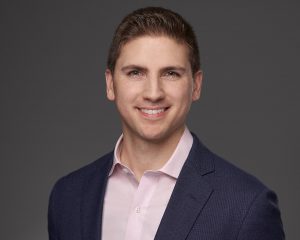 Automatic Data Processing (ADP) is a $97 bn human resources management software company listed on Nasdaq. Danyal Hussain joined the firm in 2018 as senior director of IR, becoming vice president and head of IR in February 2020.
Automatic Data Processing (ADP) is a $97 bn human resources management software company listed on Nasdaq. Danyal Hussain joined the firm in 2018 as senior director of IR, becoming vice president and head of IR in February 2020.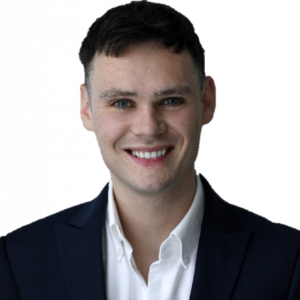 Chris Foster joined Liontrust in April 2017 as part of the acquisition of Alliance Trust Investments (ATI). Chris had initially joined ATI through the management training programme after graduating with a First Class Honours degree in Economics and Mathematics from the University of Edinburgh. Chris is a CFA Charterholder. Chris has ten years’ industry experience and has been part of the Liontrust Sustainable Investment team for eight years.
Chris Foster joined Liontrust in April 2017 as part of the acquisition of Alliance Trust Investments (ATI). Chris had initially joined ATI through the management training programme after graduating with a First Class Honours degree in Economics and Mathematics from the University of Edinburgh. Chris is a CFA Charterholder. Chris has ten years’ industry experience and has been part of the Liontrust Sustainable Investment team for eight years.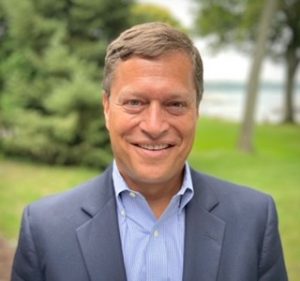 John Renwick, VP of Investor Relations & Corporate Planning at Kellanova (formerly Kellogg) has spent 23 years at the company. He initially joined in 2000 as VP of IR & Competitive Analysis and then held a number of operational roles in – Kuala Lumpur, Malaysia, Toronto, Canada, Queretaro Area, Mexico before returning to Battle Creek, MI and reprising and expanding his role as VP of IR & Corporate Planning in 2016.
John Renwick, VP of Investor Relations & Corporate Planning at Kellanova (formerly Kellogg) has spent 23 years at the company. He initially joined in 2000 as VP of IR & Competitive Analysis and then held a number of operational roles in – Kuala Lumpur, Malaysia, Toronto, Canada, Queretaro Area, Mexico before returning to Battle Creek, MI and reprising and expanding his role as VP of IR & Corporate Planning in 2016.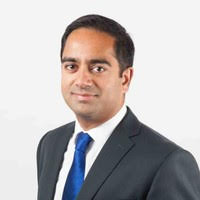 Sanjiv Tumkur joined Rathbone Investment Management in 2016 as Head of Equity Research, becoming Head of Equities in 2022. He is responsible for developing and promoting
Sanjiv Tumkur joined Rathbone Investment Management in 2016 as Head of Equity Research, becoming Head of Equities in 2022. He is responsible for developing and promoting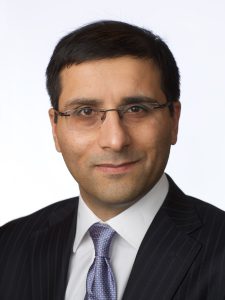 Suhail Arain is head of portfolio management for the Americas. He joined Pyrford in 2008 as a portfolio manager covering North American equities having previously worked at Scottish Widows as a global equities portfolio manager and research analyst. He has more than 25 years’ experience in the asset management industry with a particular emphasis on US and
Suhail Arain is head of portfolio management for the Americas. He joined Pyrford in 2008 as a portfolio manager covering North American equities having previously worked at Scottish Widows as a global equities portfolio manager and research analyst. He has more than 25 years’ experience in the asset management industry with a particular emphasis on US and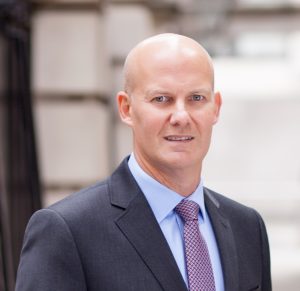 David Shaw is co-head of global equities at AXA Investment Management. He also manages the Global Sustainable Distribution Fund, co-manages the Global Sustainable Managed Fund and is deputy on the American Growth fund. He joined AXA in 2016 from Aerion Fund Management (2000-2016). Before this he worked at NPI, NatWest Investment Management and United Friendly Asset Management. He was educated at City University and has a BSc (Hons), Electronic Engineering.
David Shaw is co-head of global equities at AXA Investment Management. He also manages the Global Sustainable Distribution Fund, co-manages the Global Sustainable Managed Fund and is deputy on the American Growth fund. He joined AXA in 2016 from Aerion Fund Management (2000-2016). Before this he worked at NPI, NatWest Investment Management and United Friendly Asset Management. He was educated at City University and has a BSc (Hons), Electronic Engineering.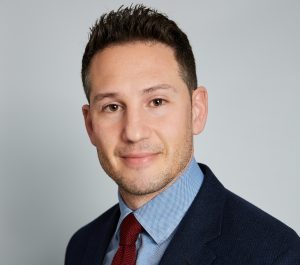 Dani Saurymper is the Portfolio Manager in Pacific’s Longevity and Social Change team. Prior to joining PAM in July 2021, Dani worked at AXA where he was Portfolio Manager of the AXA Framlington Longevity Economy fund. He was also Portfolio Manager of the AXA Framlington Health Fund and research lead for Health, Ageing & Lifestyle at AXA Framlington. Dani has over 20 years experience in the Healthcare sector.
Dani Saurymper is the Portfolio Manager in Pacific’s Longevity and Social Change team. Prior to joining PAM in July 2021, Dani worked at AXA where he was Portfolio Manager of the AXA Framlington Longevity Economy fund. He was also Portfolio Manager of the AXA Framlington Health Fund and research lead for Health, Ageing & Lifestyle at AXA Framlington. Dani has over 20 years experience in the Healthcare sector.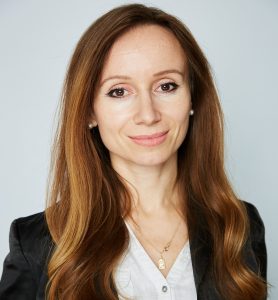 Julia Varesko is a Senior Analyst in Pacific’s Longevity and Social Change Team. Prior to joining PAM in September 2021, Julia was a senior analyst covering diversified financials at JP Morgan. She has also held roles at Elsworthy Capital and Berenberg Bank as well as a prior period at JP Morgan where she spent six years covering the Capital Goods sector. Julia is a CFA Charterholder and holds an MSc in Accounting and Finance from the London School of Economics and a BSc in Economics from University College London.
Julia Varesko is a Senior Analyst in Pacific’s Longevity and Social Change Team. Prior to joining PAM in September 2021, Julia was a senior analyst covering diversified financials at JP Morgan. She has also held roles at Elsworthy Capital and Berenberg Bank as well as a prior period at JP Morgan where she spent six years covering the Capital Goods sector. Julia is a CFA Charterholder and holds an MSc in Accounting and Finance from the London School of Economics and a BSc in Economics from University College London.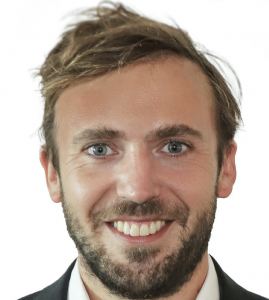 Robeco is one of Europe’s largest asset managers with more than $200 bn in assets under management. Founded in 1929, just weeks after the Wall Street Crash, by seven Rotterdam businessmen who formed a syndicate to invest people’s savings and manage money collectively, it was called the Rotterdamsch Beleggings Consortium, later shortened to Robeco.
Robeco is one of Europe’s largest asset managers with more than $200 bn in assets under management. Founded in 1929, just weeks after the Wall Street Crash, by seven Rotterdam businessmen who formed a syndicate to invest people’s savings and manage money collectively, it was called the Rotterdamsch Beleggings Consortium, later shortened to Robeco.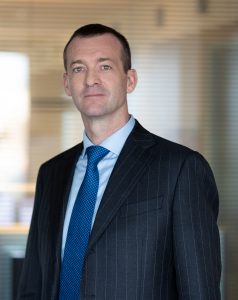 Roberto Magnatantini joined DECALIA in 2020. He is lead portfolio manager of DECALIA Silver Generation and DECALIA Eternity funds. Before joining DECALIA, Roberto was Head of Global Equities at SYZ Asset Management, where he spent 12 years managing two strategies for the OYSTER funds’ franchise. Before that, he worked four years at Lombard Odier and four years at HSBC where he managed equity funds. He is a CFA and CMT charter holder and holds a ESG certification from PRI.
Roberto Magnatantini joined DECALIA in 2020. He is lead portfolio manager of DECALIA Silver Generation and DECALIA Eternity funds. Before joining DECALIA, Roberto was Head of Global Equities at SYZ Asset Management, where he spent 12 years managing two strategies for the OYSTER funds’ franchise. Before that, he worked four years at Lombard Odier and four years at HSBC where he managed equity funds. He is a CFA and CMT charter holder and holds a ESG certification from PRI.